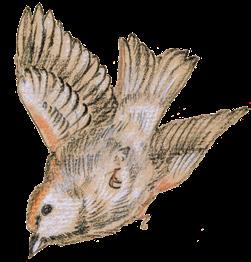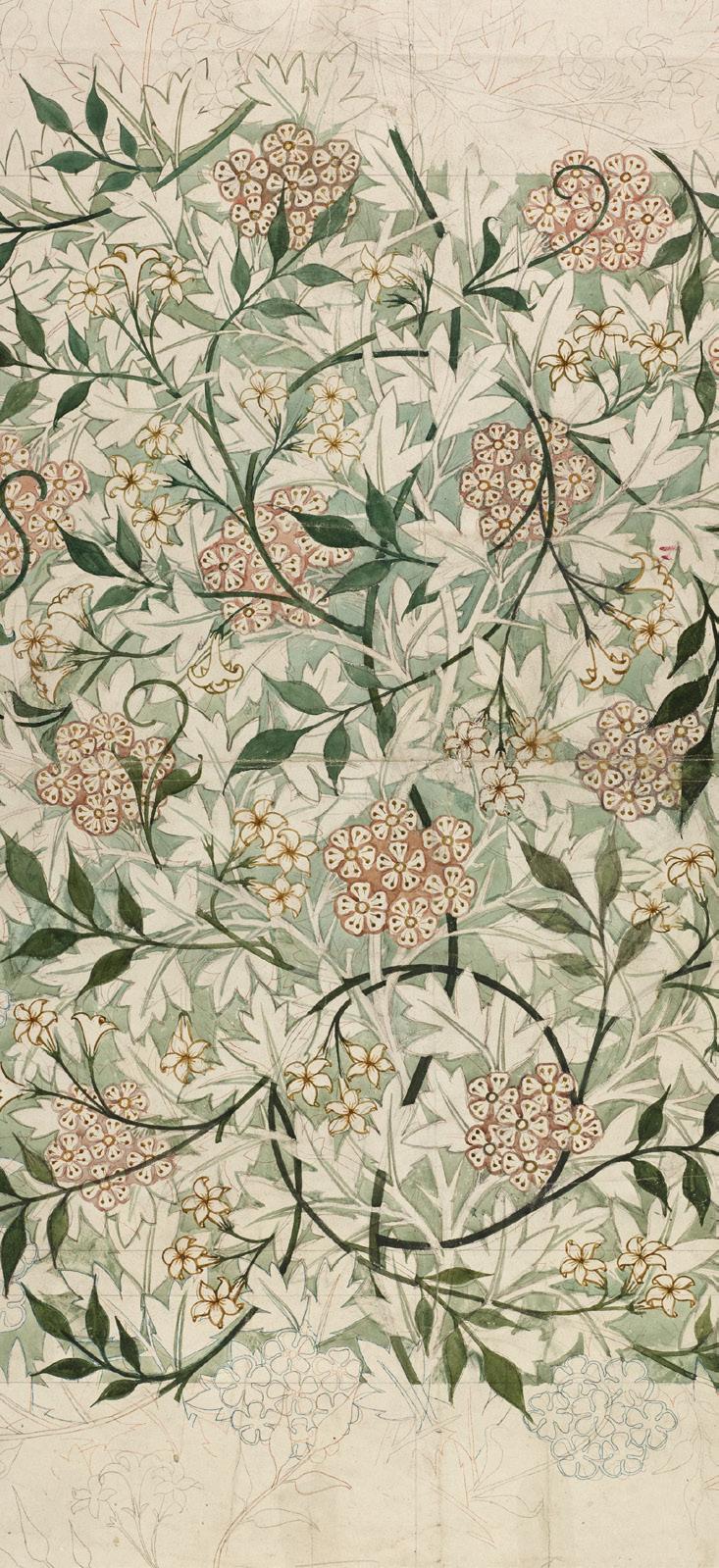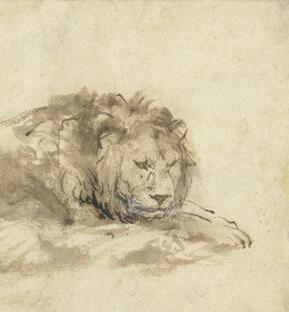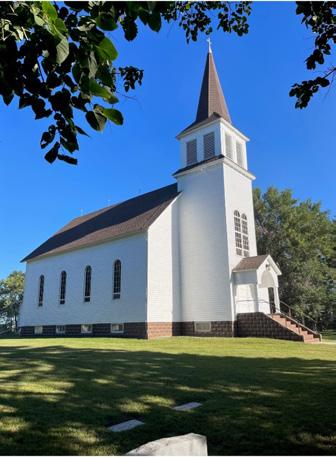Lutheran AMBASSADOR Miraculous births

















VOL. 60 NO. 12
Pastor Andrew Kneeland laeditor@aflc.org
As Advent and Christmas approach, I’ve been thinking about the Virgin Mary’s time of Advent as she waited for her Son to be born. Reflecting on that time has helped me ponder, like she did (Luke 2:19), the wonder of what God did through her and for her in Jesus—and for us, too.

What first strikes me about the angel’s annunciation to Jesus’ mother is that she accepts a life of suffering for His sake. When Mary says, “Let it be to me according to your word,” she is embracing the pain of pregnancy and labor, ignominy among Nazarenes, the responsibility of raising and protecting the Messiah, the sight of her Son’s crucifixion, and a commitment to only having Him with her on earth for 33 years. To all this, without even knowing all this, Mary says, “I am the servant of the Lord.” She offers her body and life in faith as a sacrifice to the God she will carry in her womb.
But Mary’s submission to suffering also gives her joy. When she visits Elizabeth, she begins her song—called the Magnificat—with the words, “My soul magnifies the Lord, and my spirit rejoices in God my Savior” (Luke 1:4647). Mary’s joy in her sacrifice stems directly from her confidence in God’s promises. Pastor Phil Haugen taught my FLBC class that Mary uses the prophetic past tense in the Magnificat to express the certainty of God’s future action. Through Jesus, God would scatter the proud and exalt the humble, fill the hungry and help His
servant Israel (Luke 1:51-55). Even before Jesus does these things, however, the Holy Spirit moves Mary to speak about them as if they have already happened.
On the night that Jesus is betrayed, moments before bringing to completion all that Mary had prophesied, He prays words that mirror His mother’s. Jesus’ life on earth begins with her profession of faith, “Let it be to me according to your word.” His life ends with the prayer, “Not my will, but yours be done.” Though Mary doesn’t understand how everything will come to pass, God’s humility in the incarnation awakens her faith to accept His calling. Her “Let it be” comes first chronologically, but it is still a response to Jesus’ own “Not my will but yours.”
Martin Luther called Mary our “dear professor and teacher.” He said that “[s]he leads the choir, and we should follow her with singing.” Especially as we observe Advent, Mary exemplifies for us the self-sacrifice every Christian undergoes for the sake of Christ. Her praise embodies the joy of the Church as we confidently await Jesus’ second coming, and her trust reminds us that faith is always only a response to the love, humility, and grace of God. “Amen. Come Lord Jesus!” (Revelation 22:20).
Skogerboe, a 2018 graduate of the Free Lutheran Bible College, Plymouth, Minn., lives in Orange, Calif. “Virgin Announced,” Lorenzo di Niccolò (1392-1412).
Ruth Gunderson ruthg@aflc.org
Circulation
Liz McCarlson lasubscriptions@aflc.org
Monica Coyle
Pastor Jerry Moan
Pastor J. Christian Andrews
The Lutheran Ambassador (ISSN 0746-3413) (USPS 588-620) is published monthly by the Association of Free Lutheran Congregations, 3110 E. Medicine Lake Blvd., Plymouth, MN 55441
Phone (763) 545-5631
Periodicals postage paid at St. Paul, MN and additional mailing offices.
Postmaster
Send address changes to The Lutheran Ambassador, 3110 E. Medicine Lake Blvd., Plymouth, MN 55441.
subscription changes and information
3110 E. Medicine Lake Blvd., Plymouth, MN 55441 763-545-5631
lasubscriptions@aflc.org
Once in our world, too, a stable had something in it that was bigger than our whole world.
—Queen
Lucy (The Chronicles of Narnia, by C.S. Lewis)Through his transcendent love the Word of God, our Lord Jesus Christ, became what we are so he could bring us to be what he is himself.
—IrenaeusThe Son of God descended from heaven into this lowliness, came to us in our flesh, laid himself into the womb of his mother and into the manger, and went to the cross. This ladder he placed on the earth so that we might ascend to God on it.
—Martin LutherThe time is fulfilled in Jesus Christ, not only in the sense that God’s promises have been realized, but also in the sense that this realization of God’s promises makes it clear that the bounds of time in history are set by God’s eternal life instead of by death.
—Ingolf DalferthAnd she will bear a son, and you shall call his name Jesus, for he will save his people from their sins.
—Matthew 1:21

The Promise-Maker fulfills His promise and Sarah becomes the mother of nations. The laughter of doubt and unbelief becomes the laughter of wonder and joy as Sarah becomes the mother of Isaac, her precious baby boy.
It isn’t hard to picture this elderly woman swaddling her baby, holding him close to her breast as she nurses him, singing softly. Can’t you hear her crooning? Her deep sigh of contentment? Father Abraham leans in. Their eyes meet as they admire their offspring, born in their old age, a pure miracle of God. Their neighbors hear their joy and come to celebrate with them. No wonder the child is named Isaac, meaning laughter. He has been named by God Himself and is the wonder and joy of all, unequaled.
I remember my own mother’s heart as I reached for my first born all those years ago. This child, too, was a pure gift from the Creator of life Himself. I knew my life would never be the same again. I would be living for my child, as every mother knows.
For Sarah, as for me, love would come naturally. Motherhood, not so easily. Though Sarah’s despondency over being childless was now turned into joy, still she encountered the problem of Ishmael. She wouldn’t be satisfied until that boy and his mother were banished.
This is hard for us to understand, isn’t it? That is, until we realize that this is a “but God” situation. The Lord clearly told Abraham that his descendants would be blessed through Isaac, His covenant with Israel.
This precept, that Isaac was chosen by God, is the crux of this story. The truth of this is evident in Paul’s writing to the Romans. See how clearly the Spirit declares God’s purpose in 9:7-11. The NASB translates it this way: “… neither are they all children because they are Abraham’s descendants, but ‘Through Isaac your descendants will be named.’ That is, it is not the children of the flesh who are children of God, but the children of the promise are regarded as descendants. For this is a word of promise: ‘At this time I will come, and Sarah shall have a son.’ And not only this, but there was Rebekah also, when she had conceived twins by one man, our father, Isaac; for though the twins were not yet born and had not done anything good or bad, so that God’s purpose according to His choice would stand, not because of works, but because of Him who calls.”
So we see that all along Sarah needn’t have become despondent and manipulative, causing anguish for her
husband, Hagar, and herself. I see some of Sarah in myself as I try to work out personal issues in my world. Wouldn’t I be more trusting, less anxious, if an angel of the Lord appeared before me rather than being still and waiting on God? I want the Lord to have His perfect way with me even as He did in Sarah’s life. We see this in I Peter 3:36 where women are encouraged to become in our inner selves “gentle and quiet even as Sarah.”
As Abraham and Sarah raised Isaac, surely they taught him to love and trust God, and that nothing is too difficult for Him. They would have also told him of his own miraculous birth! Father Abraham must have taught his son about the covenant Jehovah God made with him to become a nation, God’s own people. I think he did, putting into Isaac’s heart a sense of destiny. How else could Isaac have left home with his father, walked three days, had the wood laid on his shoulders, been bound on the altar, and simply said, “Father, where is the lamb for the sacrifice?” It seems that Abraham’s answer was sufficient for his son: “God will provide for Himself the lamb.”
Doesn’t that speak volumes to you? That’s why we have the Scriptures, a means by which the Holy Spirit teaches and guides His children. And we are Abraham’s children as Galatians 3:7 says, “Be sure that it is those who are of faith who are the sons of Abraham.”
The sense of destiny, to not only be His child but to become all that He has purposed and planned for me, is mine through the teaching of my sweet mother and father as well as my teachers along the way. Sarah’s, Abraham’s, and Isaac’s lives speak to me. The miraculous birth of Isaac speaks to me as I think of the privilege of experiencing this same miracle of birthing God’s children.
Isaac being offered as the sacrificial lamb speaks to all of us of God’s offering of His only Son, a sacrifice for our sins, giving us a future and a hope. The PromiseMaker kept His promise!
Gunderson lives in Coeur d’Alene, Idaho. Artwork: “Abraham Sacrificing Isaac,” by Harmen ter Borch, 1651.
 By Clara Gunderson
By Clara Gunderson








 By David Olson
By David Olson






This is where Samson’s story always starts in the Book of Judges. Judges is a microcosm of the story of redemption played on repeat. The people wander. Everyone does what is right in his own eyes and God gives them over to the consequences of their sin, typically embodied by an enemy coming and conquering them. But God is always moved with pity and each time sends a rescuer—a judge. Wander. Judgment. Rescue. Repeat.
In this particular cycle, God goes to the unlikeliest of sources—a barren woman. How can God raise up salvation from a family line that is about to go extinct? Yet God revels in the impossible. He sends an angel to promise her a son who is to be set apart for God’s work from conception.
Life from barrenness. Promise from hopelessness. “Therefore be careful and drink no wine or strong drink, and eat nothing unclean, for behold, you shall conceive and bear a son. No razor shall come upon his head, for the child shall be a Nazirite to God from the womb, and he shall begin to save Israel from the hand of the Philistines” (13:4-5).
Samson, the promised child, is gifted with supernatural power. He kills a young lion with his bare hands (14:5-6). When the people of Judah decide to turn him over to the Philistines, they send 3,000 men to accomplish the task. This was apparently was about right, but they might have been under-prepared. Although Samson does not fight the men of Judah, he bursts his bindings when he is turned over to the Philistines. He picks up a jawbone of a donkey and strikes down 1,000 men (15:9-17). He takes hold of a city’s gates and its posts and “pulled them up, bar and all” (16:3) and carried them to the top of a hill. The Philistines cannot stand against Samson in his Godgiven power.
But what is most fascinating is that it is not Samson’s life which crushes his enemies, rather, his death. “And Samson said, ‘Let me die with the Philistines.’ Then he bowed with all his strength, and the house fell upon the lords and upon all the people who were in it. So the dead whom he killed at his death were more than those whom he had killed during his life” (16:30).
Samson’s death destroyed the house of Israel’s enemies. In some ways, this would be like destroying a capitol building during a national event. Samson not only killed more in his death than in his life, but he also killed the leaders and important people. The Philistines are not mentioned as a threat to Israel again in the book of Judges. Samson’s death seems to have destroyed Philistine power for at least a generation.
Now, we have skipped a few parts of the story. Samson was not an ideal leader or deliverer. In fact, we see very little leadership from him at all. He was compulsive, rash, and emotional. He played childish games with his adversaries and got angry when he lost. He got involved with a Philistine woman and gave up the secret of his strength to his clearly treacherous wife, finding himself blind, enslaved, and humiliated.
All this reminds us that Samson was not the hope we are looking for. Like all the characters who prefigure Christ in the Old Testament, Samson’s life is merely a shadow pointing to a greater fulfillment. Isaac with his favoritism is not our hope. David with his adultery and murder is not our hope. Samson with his hubris and folly is not our hope. But in his story, we see God point to the pattern that is fulfilled in Christ.
We were lost in our transgressions and sins. But God, being rich in mercy, sends another angelic messenger to a woman and promises a truly impossible child; the virgin will conceive and bear a son. Barren women might, in some rare circumstances, suddenly conceive. But a virgin? Virgins do not conceive. This miracle son pushes back His people’s enemies with supernatural power. He heals diseases. Casts out demons. Forgives sins. Against sin, death, and the devil, He drives back the darkness and the ruling powers of this world.
However, it is not just His life that accomplished His task. In His death, Christ destroyed the house of His enemies. He redeemed His people so that they would no longer to be slaves to sin but transferred to His own Kingdom (Colossians 1). Death has lost its sting as we are buried with Him to be raised in newness of life (Romans 6).
Olson, a member of Abiding Savior, Sioux Falls, S.D., serves on the AFLC Coordinating Committee. Artwork: “Manoah’s Offering,” by Willem Basse (1725-1751).
“And the people of Israel again did what was evil in the sight of the Lord so the Lord gave them into the hand of the Philistines for forty years.” Judges 13:1

Hannah is found in I Samuel weeping “in bitterness of soul.” This expression is only used in the Old Testament when referring to those who have lost a child through death (Ruth 1:13, 20; II Kings 4:27; Zechariah 7:11; Isaiah 38:15) or those who experience overwhelming suffering (Job 3:20; Isaiah 38:15). Here, Hannah is barren, and her pesky relative Peninnah won’t let her forget it. Her husband tries to cheer her up by giving her a double portion of meat—but it does no good. Hannah is in tears and refuses the food (vs. 7). Perhaps you have been there, in such bad shape that you didn’t even want to eat. Grief can be debilitating like that, as sorrow washes over us in its dreadful waves. It can feel like God has forsaken us and that He hasn’t heard or answered our prayer. I like the way that John Mittelstaedt describes Hannah’s plight in his Bible commentary:
The worst times for Hannah were during the holidays, the festival days. As families gathered, wives were sure to discuss family life and compare children. Peninnah used such occasions to lord it over her rival. Not even Elkanah’s profession of undying love could fill the emptiness of Hannah’s life. Though no one else seemed to understand, Hannah was sure God understood. She took her need to the Lord in prayer.
In the middle of her deep sadness, Hannah went to the right place. She poured out her heart before the Lord (vs. 15). Eli, the priest, saw her lips moving with no sound coming from her and thought this perhaps to be a case of PWI (praying while intoxicated). After she explained her plight to Eli, he said to her, “Go in peace, and may the God of Israel grant you what you have asked of him.”
Catch what happens next—Hannah leaves the temple completely changed. Verse 18 records that her face was “no longer downcast,” and she found the strength to eat. The bitterness in her heart was replaced by faith. What incredible comfort faith can give, even when the situation doesn’t seem to have changed outwardly.
Months later, Samuel was miraculously born to Hannah after years of barrenness. His name means “God has heard.” The Lord brought Hannah out of her “great anguish and grief” (vs. 16), and later Samuel would become one of the greatest prophets of Israel. He was set apart as a Nazarene, meaning he was “consecrated to the service of God.” In a way, Samuel foreshadows Christ, who would be the epitome of service to God. As it is written in Matthew 20:28, “The Son of Man did not come to be served, but to
serve, and to give his life as a ransom for many.”
The Christological overtones don’t end there, though. In the following chapter, Hannah sings a song of praise to God for His work in her life. Notice the striking similarities between Hannah’s song of praise in I Samuel 2 and Mary’s song, written a thousand years later, in Luke 1:46-55. In both cases, God chose women of lowly estate to bring about miraculous births.
Today we can say “God has heard” the deepest cries of our hearts. When sin separated us from our loving Father, God heard our need for a Savior and sent His Son for us, Christ our Savior.
As we enter this season of feasting, with Advent and Christmas just around the corner, I wonder how many hearts are feeling like Hannah’s. A little extra heavy. Burdened. Unable to be comforted with extra food. Yes, there’s plenty of food … but hurting hearts seek something greater. They seek the hope of God.
Hannah walked out of the temple with a spring in her step, even after crying profusely. How could such a drastic change be possible? She had encountered the God of hope. She had come to trust the God who hears, who understands. May we have this same encounter. Jesus is all the strength that our weary and burdened souls need, even when we are wounded, even when our hope is gone. May He fill us up through the power of the Holy Spirit.
Consider these words from Romans 5:5, “... hope does not disappoint, because the love of God has been poured out within our hearts through the Holy Spirit who was given to us.”
May you have a hope-filled Advent and Christmas season.
Olson is an AFLC missionary on-loan to They Need the Bible and serves the unreached people groups of the world through Bible translation. Learn more at theyneedthebible. org. Artwork: “Study of Eli Talking to Hannah,” by Rembrandt van Rijn (1606-1669).





 By Pastor Andrew Olson
By Pastor Andrew Olson






 By Rene Astorga
By Rene Astorga


Four hundred years or so had passed between the last words of the prophets and the time of Jesus’ birth. The people of Israel had been waiting. They had heard story after story about a Messiah who would come and save them. The prophets even went so far as to say that “the government would be on his shoulders” (Isaiah 9:6-7).
Enter Zechariah and Elizabeth. They were both of the lineage of priests (Luke 1:5). They were both described as being righteous in the sight of God, but they were without child. This was rather troubling because not having children would have been seen as a curse from the Lord. But here they were without child and serving diligently enough so that they were seen as righteous.
Out of all the priests serving in the temple, only one priest could burn incense at a time. The priest chosen on one particular day was Zechariah. By entering the Holy Place within the temple to burn incense, Zechariah was being faithful in his calling as a priest. It is unlikely that he was expecting anything like a messenger from God.
At the appearance of the angel Gabriel, Zechariah fell to the ground. “Do not be afraid, your prayer has been heard,” said the angel. Zechariah didn’t immediately believe what was happening. Despite his unbelief, he was told that he and Elizabeth would have a child. And this child would turn the hearts of the children of Israel to God.
The Scriptures say that Zechariah’s unbelief was based on his and Elizabeth’s advanced age. From a human perspective, his skepticism is understandable. And, if we apply that human perspective to the subsequent events of the Gospels’ story, that skepticism is still warranted: the message of hope goes to shepherds, the outcasts, the poor; their promised son, John, is killed for being true to the Lord (Matthew 14:1-12); Christ is rejected (John 1:10). It is easy to hear this message in disbelief. The Light of the world did come, and His way was prepared, and they still rejected the plan of salvation.
Can a message of repentance turn the hearts of people toward the Lord?
One look at the current state of our country and world and I think, no way. There’s no way the Lord
could—or should—help and rescue these people. Or, there is no way these people will repent of their evil ways. They call what is evil good, and what is good evil (Isaiah 5:20). A lot of us probably shake our heads and wonder how the gospel message can ever get through to such sinners. However, we were at one time one of those, so I guess it’s possible. We tend to get amnesia, though, don’t we?
Perhaps, then, our mouths should be shut like Zechariah, as well (Luke 1:20). After all, the Lord will prove His own word true again and again. God is the great rescuer of the world, and His desire to bring all nations into the fold has not dwindled (Psalm 2:12, 67:1-3).
Further in Luke’s Gospel story (1:76-77), we see Zechariah’s mouth reopened and he declares what was foretold about John the Baptist.
“And you, child, will be called the prophet of the Most High; For you will go before the Lord to prepare His ways, To give knowledge of salvation to His people in the forgiveness of their sins, Because of the tender mercy of our God …”
During the Christmas season, we retell the story of waiting for our Lord Jesus to come as a child. But now we are waiting for our Lord Jesus to return a second time. There is much preparation to be done. Preparation begins in our hearts. Make way for the Lord in your own heart. The purpose of preparation is not only to change you—the Lord has others in mind, too.
Pray diligently that our lives are not conducted in worry, but in mindfulness of our mission to those around us. This is a scary proposition for some, but consider that we’ve received His Holy Spirit, and that the same power that conquered death lives in us (Romans 8:11). We, too, are given the task of preparing the way of the Lord. It is our honor, in His might and with His Spirit, to make the Lord known.
Astorga is a youth pastor at St. Ansgar’s Lutheran, Salinas, Calif. Artwork: “St. John the Baptist Pointing to Christ,” by Willem van Oordt (1635–55).

 By Kristin Molstre
By Kristin Molstre




These past few years have tested and tried even the most stoic. The residual effect of the disruption and loss to our community and our world continues like the aftershocks of a COVID and cultural earthquake. If there was any illusion of control, personal or communal, it is gone, and we find ourselves longing for the peace and presence of our Savior.
He is here. He has walked through it all, in us and with us. He is born.
Perhaps we can relate, then, to the longing of believers in the nation of Israel, who also prayed for God’s peace and presence, a promised Savior, who would set the people free from fear and sin. As we look back on the unfolding of God’s remarkable promise, four things become apparent: His timing,
We know God’s timing is perfect because we see His ordering of events in Scripture, His deposing of kings and raising up others (Daniel 2:21), His appointment of prophets and leaders, and His intervention to preserve and move His people toward Himself.
While we have the benefit of God’s whole written Word to study, the people of Israel did not. They had been listening to 4,000 years of prophecy pointing to the arrival of a Messiah, and when the “right time had come” (Galatians 4:4) this miraculous birth of the Savior of the past, present, and future whispered its way into the world and
largely went unnoticed by the human race.

The angels in the heavens craned their necks to view this unparalleled event, this incredible culmination of the promise to rescue mankind, and then exploded the night with praise and rejoicing. Except for a few shepherds and the magi studying the stars in the east, the people who had been given this promise, who had been alerted to watch and wait, slept.

This quiet event pierced a world shrouded in sin and fulfilled God’s promise to His people, “The people walking in darkness have seen a great light; a light has dawned on those living in the land of darkness … For a child will be born for us, a son will be given to us, and the government will be on his shoulders. He will be named Wonderful Counselor, Mighty God, Eternal Father, Prince of Peace” (Isaiah 9:2, 6). That to which the spiritual realm bore witness would change the world. Jesus was born under the law, fulfilled the law by His death and resurrection, and freed His own from sin. “Do not think that I have come to abolish the law or the prophets; I have not come to abolish them, but to fulfill them” (Matthew 5:17).
Looking back at the birth of the world, God’s amazing creation, we see how sin brought about separation and suffering, followed by God’s provision and promise (Genesis 3:15). We see the same in the birth of the nation of Israel in the wilderness. Upon being freed from Egypt, Israel, soon after covenanting with God, falls to sin and feels the resulting separation. Even here in Exodus, we see provision and promise. And finally, after a continuous cycle of sin and separation, God sends His long anticipated spotless lamb, Jesus, to suffer under our sin and to provide the final sacrifice, the fulfillment of His promise.
If we ponder long enough over this idea of fulfillment
we realize what God spent to put us in a righ relationship with Him: humility, suffering, and love. He walked this earth for 33 years with the limitations that an earthly body brings, all the while ministering to sin-damaged people, healing their bodies and their souls. He defeated death, spiritual and physical, to live with us and in us. According to Isiah 53:11, “Out of the anguish of His soul He shall see and be satisfied.” Christ found the results of His suffering and death so valuable, so satisfying, because the result of it all is a relationship with you.
He lives in us and with us because His death atoned for our sins. Gone is the need for purification and animal sacrifice. We have forgiveness (Ephesians 3:12). No more curtain. No more priests. No more lambs. Instead, we have Immanuel, God with us, just as Isaiah prophesied. This access also gives us peace according to Romans 5:1-2. As believers, we stand before God without fear of retribution for our sins. In fact, God invites us into His presence.
It is easy to dwell on the imperfections, the sickness, sadness and evil in our world, but Romans 5:2 tells us to “rejoice in hope in the glory of God” because of what Jesus did. We are in the center of His grace, and we can be sure that the longing for His physical presence will be satisfied when we move from this life to the next. This Christmas, as you remember the gift of our Savior and how He redeemed believers, remember that we are awaiting His return.
Molstre is a member of Hope Lutheran, Minneapolis. Artwork: “Joseph Meets the Christ Child,” printmaker Lorenzo Zucchi after a drawing by Matthias Oesterreich after a painting by Giuseppe Angeli (1714-1779).
“The Lord is coming, always coming. When you have ears to hear and eyes to see, you will recognize him at any moment of your life. Life is advent; life is recognizing the coming of the Lord.”
-Henri Nouwen

It was Sunday before Christmas. The meeting in the schoolhouse was just ending. The speaker stood up and asked if there was anyone who could take him in for the night. Nobody answered but several turned and looked at one of the desks further back where Knut and Brita Storvang sat. Matter of fact, there was no one else in the community who had as much room to take in a visitor
They had no children, a maid, and extra beds. People knew that pastors stayed there. Knut’s mother, who had died half a year ago, had been a warm Christian. While she lived it was well known that those who traveled for God’s cause stayed at her place. But after she died the Storvang hospitality died, too. Knut and Brita were nice people, but they weren’t so hospitable that they offered a place to stay and food to people they didn’t know and associated with.
“It was mission friends in the north district who wanted me to have a meeting before I went home,” the preacher
No one responded. Brita looked at Knut, but he ignored her with a shake of his head. Again, people looked toward the Storvang couple and Knut felt he had to say something.
“Hmm, hmm, there is a ski station not so far from here.” Brita’s body jerked and Knut looked downward.

“Is that so? Then I will go there. Thank you.” The speaker nodded kindly to the two on the last bench and


On Christmas Eve Brita and Knut sat alone in their roomy home. The Christmas table was set with buttered lefse and lutefisk. Brita came with the teapot and offered him more to drink, but Knut declined; he didn’t want more.
“Then we must read the Christmas story,” she said, and
He took the Book and began to turn the pages. It was the Christmas gospel that must be read.
The story had been read at Storvang each Christmas as far back as he could remember. It was his mother who had decided that; now it was up to him. He turned some more pages and came to the second chapter of Luke. Knut was not as unfamiliar with the Bible that he couldn’t find its most important message.
By Lars Rustbole
“The Christmas gospel is written by the evangelist Like.” He felt that he had to start out that way because it would be so in church. Then he began to read, but when he came to the second verse there was a long pause and he tried to cover it with a small cough.
“—because there wasn’t r—, r—, r— room for them in ... the ... inn ...”
He couldn’t go any further. And when he tried to go on, a heavy sigh followed, and that was followed by a halfsmothered groan.
Brita stared at him and he stared at her. There was something in their faces which expressed pain but neither said anything.
Knut broke the silence by rising. He went out to the stable to take care of the horses. It was good to go out alone because there was something inside himself which wanted to burst out.
“There wasn’t room—no room” rang out in his ears. It was exactly as if the Bible had become a loudspeaker, incessantly calling the same words, “no room, no room.”
When he entered the stable door, Brunen the horse whinnied. Knut was confused and began to shake. He thought the horse was mumbling, “No room—no room—no room.”
When he came in from the stable, Brita was going around silently; quickly she was where he was, but suddenly she was in the kitchen. There was an inner restlessness which drove her back and forth without thought of resting. When she lay down at night, instead of falling asleep quickly as usual, now sleep didn’t come until long after midnight. Knut was still awake and heard in her long, grating breaths, “r—o—o—m, r—o—o—m, r—o—o—m,” buzzing in his ears, and he lay all night without sleeping.
Knut went to church on Christmas Day. The pastor gave a serious message and a choir provided music. There was a Christmas spirit in church that day, but Knut occupied himself only with a thought which had sounded from the pulpit.
“Because there was no room for them in the inn—”
When the service was over, Knut arranged to greet the manager of the ski station and ask him if the preacher that
night had stayed there.
“Yes, that was a humble man.”
“Did you drive him?”
“No, he left early to catch the train.” “Hmm ... that would be two miles.”
“Yes, he apologized that it would cost too much.” “Did he talk about the meeting we had in the school?” “No, he didn’t mention that. He had devotions in which he prayed for the people in our district. He was a very serious man.”
Knut nodded and left. He had heard enough. The distress and restlessness of conscience came again and stronger than ever. He thought of Christmas Day two years ago. Then, he had driven Mother to the church. When they were about to go in the pastor came and asked if they would like to have meetings with a lay preacher who was coming.
“He is welcome at our place,” answered Mother.
It was different that time. Now the pastor didn’t come to have meetings for he realized that there wasn’t room at Storvang.
When Knut came home the Bible was lying on the table. What had Brita been reading, he wondered. He went over to see and his glance fell on Hebrews 12:2: “Don’t forget hospitality. For by it someone, without knowing it, has entertained angels.” He sank down in a chair. Perspiration began to show on his face and he took a handkerchief out of his pocket. Then the kitchen door opened, and Brita entered. Her eyes were red, and her cheeks showed marks of tears. She had fought a battle that Knut didn’t realize.
“I’m not able to take this any longer,” she said. “I haven’t had a good hour since we were in the schoolroom. So today I wanted to find peace by reading in the Bible. Your mother put a mark in it and I found it. It refers to us. We haven’t been hospitable and have closed our home—against angels.”
She couldn’t say more and began to cry. There was a long pause with a painful catch of breath—. Finally, she was able to continue. “There hasn’t been any Christmas for me this year. It is just like we shut out Christmas joy with the preacher we weren’t willing to take in.”
“Just like I have felt also,” said Knut, clearing his throat. He couldn’t hide the cry that was there.

They knelt just like they had seen his elderly mother do, and without waiting for each other they began to call out to God for forgiveness.

There was Mother’s watered seed that began to grow. It had taken root in a meeting, a meeting from which the preacher left not finding any room.
Brita and Knut experienced a life of change. From then on there was Storvang again.
Translated by Pastor Raynard Huglen, Newfolden, Minn. Printed in “Evangelisten,” July 1935. Artwork: “Winter Landscape near Ždiar,” by Ferdinand Katona (Slovakia, 19001910). Inset artwork from the “Evangelisten” article.

Over the years, I have grown to have a deep love for the Advent season. When I began serving our congregation in Fargo, N.D., in 2015, it was the first time in my memory that I had ever participated in Wednesday night Advent services. My initial reaction to the prospect of another weekly service and sermon to plan and prepare for during one of the busiest seasons was probably not very wholesome or positive.
But God quickly changed my perspective. The extra attention that those services brought to the season was so enriching. For example, my understanding and joy in the hope of Christ has grown so much in recent years. Last year, I was struck by a line in the well-known Christmas hymn, O Holy Night. The song declares, “A thrill of hope, the weary world rejoices, for yonder breaks a new and glorious morn.” There are so many things that make us weary, that steal our happiness. Jeremiah laments, “My soul is bereft of peace; I have forgotten what happiness is” (Lamentations 3:17). Moreover, Paul declares in Romans 8 that “all creation groans.” All is not right with the world.
But amid a dark and sad world, this hymn exclaims that
there is a thrilling hope and the promise of a new and glorious morning. Jeremiah does the same thing. A few verses later in Lamentations 3, he writes, “But this I call to mind, and therefore I have hope; the steadfast love of the Lord never ceases; his mercies never come to an end; they are new every morning; great is your faithfulness” (vs. 21-23). God’s faithfulness was fulfilled when Jesus was born in Bethlehem. His steadfast love was on full display when the Son of God hung on the cross for you. And the newness of His morning mercies are ours because the grave is empty. Christ is our hope, and that fills us with joy!

It is a privilege for Christians to proclaim this message of the light of Christ in a dark world. And it’s an honor and a joy to share that message with you as your president. One of my prayers as I begin this call is that I would be faithful to follow the lead of John the Baptist, who saw Jesus and pointed people to him. “Behold, the Lamb of God who takes away the sin of the world” (John 1:29). I want my message, and our collective message to the communities we serve, to be marked by the hope of Christ.
Will you join me in that task? As I am learning about my new job, a lot of people
understandably ask me about various numbers. How many students do we have? How much money are we spending? How many congregations are there? How many congregations don’t have a pastor? Numbers can be helpful, but numbers can also be distracting. They tempt us to wring our hands when they aren’t what we want them to be, and then we spend all our time trying to fix the numbers. Please believe me when I say that I am not advocating for poor stewardship; rather, I pray that our focus remains steadfast on the hope of Christ. I pray that we would prioritize sharing this hope in and through our congregations, whether we have five of them or 500 of them. I pray that when it comes to financial needs or filling empty pulpits, God would provide according to His will, and His will may be done among us. Whatever His will is regarding those things, we know His will regarding us. He wants us to be saved, and He made the way for that to happen. That is glorious truth that brings thrilling hope.
Hjermstad is the president of the AFLC, elected at the 2022 Annual Conference.
Awise friend recently asked me how seminary was going. I responded that it was going well, but I was wrestling with numerous theological topics that were difficult to resolve in my mind. After further elaborating my difficulties, she responded, “That tension is good to wrestle with. But it’s also good to realize we can’t know it all. We’re not God, and it’s okay to just be a human being.”
What does it mean to be Lutheran and why does it matter? My friend’s answer relates well to that very question. We are not God, and it is okay to be human. At the very core of Lutheran doctrine is a realization that God’s Word has made certain things abundantly clear, while others remain a shrouded mystery. This has been a great encouragement to me early in ministry.
To be Lutheran means to be clear, loud, and proud of the things that Scripture makes clear. We know that God’s Word is completely true and creates life and change (Hebrews 4:12). We know Jesus Christ came into the world to save sinful mankind (I Timothy 1:15). We know the only way to be restored in relationship with God is through faith in His Son Jesus (John 14:6). We know Christ is coming again to raise believers from the grave (I Corinthians 6:14). The list of clarity continues and strengthens our faith. To be Lutheran means that we clearly articulate the things that Scripture clearly shows us. We are loud and proud of them like fans sharing the final score of a game after their team has won.
Letting the tensions remain as they are releases the Church to focus on the things that are clear in this life which lead us to eternity. When functioning in a healthly way, the Lutheran church preaches the stern law of the Lord which leads to repentance and sweet trust in the gospel of Christ. The Lutheran church preaches pure justification by faith alone, through grace alone, in Christ alone. The Lutheran church seeks to share that grace with all who would believe, from the oldest to the youngest.
There is a great sense of humility within many in our Lutheran church body that is beautiful and must be protected
BY ALEX MONSETHTo be Lutheran also means we let tensions remain tensions when Scripture itself does not resolve them. We know we serve a fully sovereign God who desires all men to be saved (I Timothy 2:3-4) and has the power to create faith in the heart of sinful man (Ephesians 2:8-9). We know that some are not saved and reject God, and thus are judged eternally (Matthew 13:42). Is the Lord at fault for this? Our rational minds may war within us over that tension. As Lutherans, we let the tension remain as the Word of God proclaims it rather than try to solve the mystery. Luther himself confessed his despair over this seeming injustice in the sovereignty of God, and yet his trust in the Lord remained.
This humble acknowledgment of the mysteries can draw us to praise as it did the apostle Paul when he described the mysteries of God in Romans 11:33-36, “Oh, the depth of the riches and wisdom and knowledge of God! How unsearchable are his judgments and how inscrutable his ways! ‘For who has known the mind of the Lord, or who has been his counselor?’ ‘Or who has given a gift to him that he might be repaid?’ For from him and through him and to him are all things. To him be glory forever. Amen.”
and preserved. The pressure to be able to provide an answer to anything and everything can feel overwhelming. Yet it isn’t a pressure which we should have to bear. We can meekly respond to the cloudy debates of theology with a simple, “I don’t know. Scripture doesn’t clearly say.”
As the great Protestant theologian Karl Barth studied the depths of theology, he was once asked what the most profound theological thought that had ever entered his mind was. After a brief moment of reflection, Barth replied, “The most profound thought I have ever known is the simple truth: Jesus loves me, this I know, for the Bible tells me so.”
We don’t have to have all the answers to all the difficult questions, for God simply requires us to have simply an answer for the hope that is within us: Christ and Him crucified. Have you found this comforting as I have during a time of deep theological study?

As my friend stated, it is okay to be human.
Monseth is a first-year student at the Free Lutheran Seminary. This piece was written for “Basic Principles of Theology/ Doctrine of the Word,” taught by Dr. Nathan Olson.
s we near the end of 2022 and the beginning of 2023, the national board of the Women’s Missionary Federation of the AFLC (WMF) would like to share information regarding WMF giving so that you can rejoice with us in God’s provision and ask Him how He might be calling your women’s group to give. The WMF has four projects that we support. At each fall meeting, the national WMF board has the privilege of meeting with the directors of these ministries to hear updates and needs. Based on the information and suggestions provided by each ministry, the board votes on which specific giving project(s) we will promote for each ministry throughout the following year.
has supported dorm improvements, including the renovation of the women’s dorm lobby— now complete—and new dorm room furniture. Through October, the WMF has received and sent $15,116. In 2023, the WMF will continue to send donations for dorm improvements, which may include renovations in the men’s dorm common areas and/or more new dorm room furniture.
The WMF supports these Christian education ministries:
• Parish Education: In 2022, the WMF has supported the upcoming publication costs for Heritage Series Vol. 6, a history of the AFLC, written by Pastor Robert L. Lee. Through October, the WMF has received and sent $14,099 for this project. In 2023, the WMF will send donations for publication projects, which may include Heritage Series Vol. 6 and/or a new children’s book on the names and titles of Jesus.
• Free Lutheran Bible College: In 2022, the WMF
• Free Lutheran Seminary: Each year, the WMF gives $100 per semester to each fulltime seminarian for books and sends a gift on their behalf to The Lutheran Ambassador for a subscription. Additional donations have gone toward the renovation of a nursery/playroom and seminary scholarships. Through October, the WMF has received $6,869 for FLS. In 2023, donations not needed for yearly seminarian gifts will be sent for special projects, which may include additional nursery/playroom items or office/library improvements.
In 2022, funds have been used to support the Alaska VBS team and other ministry needs at the discretion of the Home Missions Board of Directors. Through October, the WMF has received and sent $25,789. In 2023, the WMF will send donations for the development of quality resources that will be beneficial to congregations and individuals as they learn about and go
through the process of church planting.
In 2023, World Missions donations will continue to be sent for personal support of AFLC missionaries. The World Missions department has the discretion to split donations between all missionaries or to direct it to specific missionary families as needed. Through October, the WMF has received and sent $39,201 to World Missions.

Donations received for the WMF General Fund are used to cover necessary expenses such as printed materials, administrative costs, executive secretary salary, travel for national WMF board members who visit AFLC women’s groups, etc. The WMF General Fund budget for 2022 is $60,650. Through October, the WMF has received $40,129 in donations for our General Fund. The General Fund budget for 2023 is $61,150.
If you have any questions about the WMF and the projects we support, please reach out! Contact information can be found on our website: aflc.org/women
Members of Grong Free Lutheran Church, Rollag, Minn., celebrated 150 years as a congregation on Oct. 2.
The congregation, originally called Norwegian Evangelical Church of Clay County, was organized by pioneer minister Bernard Hagebo. Many churches north and west of Rollag mention him as being the chief organizer in their early histories. He was truly one the first evangelists in this part of the country.
The constitution was drawn up and signed on Sept. 27, 1872, at the home of Erick Hanson. Those signing the original charter were S. P. Solum, Breded A. Berg, Thom Gunderson, P. P. Solum, Martin Bertilson, P. O. Fiskum, Erick Hanson, and Thov Herbrandson. Fiskum was from Grong, Norway, and it is believed this is where the name of the congregation came from.
1927 when the entire building was jacked up, steeple and all, the ground was dug out, and a basement was built. In 1950, the interior went through a major remodel and face lift and a kitchen and dining room were added in the basement. In 1979, a small addition was added to the east end of the basement for indoor toilets. Prior to this, the old, faithful outhouse served its purpose for nearly 100 years.
Grong Free Lutheran, Rollag, Minn., was established in 1872. Its members celebrated the congregation’s 150th anniversary this fall.

The two acres of land where the church now stands were purchased for the sum of $20 from Jim Haavik in 1877. The congregation also owned two 40-acre parcels of land northeast of the church where the present Western Minnesota Steam Thresher’s Reunion is located. One parcel is where the terraces on the southwest corner of the grounds are located, and the other parcel is where the East Gate is located. The Grong parsonage stood on the latter of the two parcels until a fire consumed the building in the 1920s. Originally, consideration was given to building the church on land that was offered by Thom Gunderson north and east of the pond at Steamer Hill. How different things would have been had the church been built there.
The main part of the church was built in 1881, a few years after the initial land purchase. In 1891 the congregation added a steeple and bell to the structure and also raised the height of the side and end walls by four feet, which allowed the addition of a gallery to the interior. The church remained much the same until
More recently, Grong Free Lutheran has experienced years of growth. Not growth in numbers, rather, growth in faith, friendship, and as a church family. As the congregation has declined in numbers—either through relocation or passing on to their eternal home—its members have grown stronger by taking up the workload and responsibilities of the former generation. Grong Free Lutheran truly personifies Christian charity and the willingness to do the task at hand.
Nearly 50 people were in attendance for the 150th celebration held on Oct. 2 at the church building. Many who had grown up in the community returned to old Grong Church to partake in the morning’s celebrations. Some who had seen a recent news report on WDAY and in the Fargo Forum came out of curiosity and the intent to join in the historic day. Current pastor Gary Simons led the service and Alex Swanson, from Kragnes, Minn., was the guest organist. Church president Jamin Krause sang Herligste Jesus—all three verses in Norwegian— with Swanson accompanying on the old pump organ. It was a real treat to hear the hymns as they would have been 150 years earlier. A light lunch followed the service, allowing for a time of fellowship and reminiscing.
—Article submitted by Pastor Gary Simons, who serves the congregation
Pastor Christopher Kumpula (pictured at right) was installed Aug. 28 at Zion Free Lutheran Church, Tioga, N.D., with Pastor Micah Hjermstad (pictured at left), AFLC president, officiating.

The 2023 AFLC Annual Conference will be held June 14-17 at the Best Western Plus Ramkota Hotel and Conference Center in Sioux Falls, S.D. Standard rooms are available for $119/night when booked with “South Dakota Association Free Lutheran Congregations for the AFLC Annual Conference.” For this rate, contact the Ramkota by phone at (605) 336-0650. Several suites are available for an upgrade.
Members of ZionSarpsborg Lutheran Church, Dalton, Minn., celebrated the 150th anniversary of Sarpsborg Lutheran. Organized in 1872, the first church building was constructed in 1875. Ten years later, a larger building was constructed for a growing congregation. That building was destroyed by fire in 1986. Sarpsborg joined Zion Lutheran in 1989. The congregation celebrated 150 years with a special service and fellowship dinner on Oct. 16.
The black metal door in front of me has a white shoestring connected to an inside latch that serves as the doorknob. I pull out a coin and rap on the door. An uncombed, curly head pops up from under the curtain at the ground-floor window next to me. Eight-year-old Yucari runs to the door to let me in. Her father, Alfredo, was paralyzed four years ago when his motorcycle hit a black cow as he was coming home from work in the dark. He had been distracted by the stars. Today we’re going to trade prayer stories.
First, he tells me about his desperate cry to God as he flew through the air after hitting the cow. He prayed his next desperate prayer as he lay paralyzed on the side of the road. It was a lonely road outside a little town, and he worried that no one would find him. But he cried out to God to send someone who would see him. In a few minutes, a friend passed by and helped him get to the hospital.
In a town filled with people who pray to saints, I was surprised that his prayers hadn’t been directed to San “Somebody” or La Virgen of “Somewhere.”
Then he told me the story of his first lesson in prayer. He was 8 years old, and his grandpa was hunting for a lost donkey.
Alfredo adored his grandpa, so when Grandpa asked if he wanted to come along, Alfredo jumped at the chance. They hunted for the donkey all day over all the hills around their little rancho town. No success. The next morning, they decided to include a nearby village in their search.

“Maybe God will help us to find the donkey today,” his grandpa said.
They searched all day again and ended up worn out in the middle of the little village.
They sat down, and his grandpa prayed, “Oh, Lord, we are exhausted. Please send the donkey to us in our path.”
Shortly afterward, a friend came by and sat down to visit with them. Alfredo’s grandpa told him about their hunt for the missing donkey, and in the middle of the story, the friend looked up and said, “Hey, there’s a donkey coming down the road. Maybe it’s yours.” Alfredo got to ride back home.
Of course, now I have to share my own donkey-hunting prayer story with Alfredo. Well,
not exactly my own, but from a young pre-king Saul whose father sent him out to hunt for lost donkeys (I Samuel 9). Saul met the prophet Samuel, who had been told by God where the donkeys were, and then Samuel anointed him king. Alfredo knows a lot Bible stories, but he’d never heard that one before, and his smile of deep satisfaction and affirmation was a gratifying sight. As my eyes slowly adjust to the dim light, I begin to see beyond a broken body that needs compassion to a paralyzed man who can pray.
Schierkolk is an AFLC missionary serving in Jerez, Zacatecas, Mexico. Alfredo is pictured with his mother holding a blanket given by AFLC quilters.

Pastor Nick Shultz was installed Oct. 30 at Pukwana Free Lutheran, Pukwana, S.D., and St. Olaf Lutheran, Chamberlain, S.D., with Pastor Gary Jorgenson, assistant to the AFLC president, officiating.
Pastor Aaron Olson has accepted a call to serve Living Hope, Rogers, Minn., beginning January 2023. Olson currently serves Calvary Free Lutheran, Arlington, S.D.
Pastor Michael Johnson has resigned from his call to Peace Free Lutheran, Canal Winchester, Ohio.
Pastor Ron Wik, Sparta, Wis., has accepted an interim call to Living Word, Mankato, Minn.
Pastor Brad Putnam has resigned from his call to Augustana Lutheran, Duluth, Minn. He is open to pulpit fill or a part-time call.
Miao “Holmes” Zhao, a 2020 graduate of the Free Lutheran Seminary, was ordained Oct. 23 at Emmaus Free Lutheran, Bloomington, Minn., with Pastor Lyndon Korhonen, former AFLC president, officiating.
Holmes serves Living Stone Chinese Fellowship, an AFLC church plant in the Twin Cities metropolitan area.
Pastor Michael Flechsig has accepted a call to serve Faith Lutheran, El Campo, Texas. Flechsig previously served Faith Lutheran, Blackduck, Minn.
Pastor Steve Jensen will be installed Dec. 4 at Hope Free Evangelical Lutheran, Ishpeming, Mich., with Pastor Micah Hjermstad, AFLC president, officiating.
Correction: Pastor Raynard Huglen, Newfolden, Minn., was added to the Marshall County Wall of Honor, not the Hall of Fame, as printed in the October issue.
Ruth Claus
Harriet Rolf
John Larson
Lutheran
Ambassador
Charlotte Fruehauf
Parish Education
JoAnn Onnen
World Missions
Muriel Hacker
Charlotte Fruehauf
Pastor Alvin Grothe
Pastor Martin Christensen, Elbow, Sask., died Oct. 23, 2022. Born Sept. 16, 1931, at Geddes, S.D., he was the son of Pastor Harvin and Sigrid Christensen. He married Arlene Gilbertson on June 28, 1957. She preceded him in death in 2011. He married Sylvia Vigoren in 2014. She preceded him in death in 2018.
Christensen lived in various places in the U.S. as a young boy. He lived with and worked for Oscar and Alice Erickson on their New London, Minn., farm. In 1946, Martin moved to Frontier, Sask., with his family where his father served Bethel Lutheran Church. In 1948 he was drafted into the U.S. Army and he served in the Korean War as a telephone operator field wireman. After the war he attended the Lutheran Bible Institute in Seattle, Wash., for two years. He returned to Frontier and worked on the Gilbertson and Onerheim farms. After marriage, they settled on the Andrew Skoglund farm just south of Frontier. There they raised their family of five children. He farmed for 38 years and also worked part time jobs as a school bus driver, salesman, and construction work. In 1987 he answered the call of God to parish ministry, first attending the AFLC seminary, then serving in Badger, Minn., and Elbow, Sask. They retired to the family farm in Frontier. After the death of his second wife, he slowly transitioned to a condo in Elbow. Martin’s faith is what grounded his life and although he had many homes on this earth, the home he looked forward to most was his heavenly home where he would be with his Lord. His greatest desire was that all might know this hope that he had in his Lord and Savior, Jesus Christ.
Surviving are five children, Bev (Dale) Swanson, Joel (Liz) Christensen, Elise (Daniel) Warne, Lowell (Cindy) Christensen, and Shannon (Ken) Hundeby; 14 grandchildren; 8 great-grandchildren; three stepchildren; and five sisters, Jeanette, Grace, Blanche, Dorothy, and Esther Marie.
The service was held Oct. 28 at Bethel Lutheran Church in Frontier, Sask., with Pastor David Hesje officiating. Burial was in Bethel Lutheran Cemetery at Frontier. Memorials are requested to ShareWord Global (formerly Gideons) or Bethel Lutheran Church, Elbow, Sask., Afghanistan Refugee Fund.
The AFLC’s monthly magazine, The Lutheran Ambassador, is now free for all subscribers. The ministry is subsidized by your gifts. For more information on giving to our ministry, contact via email at lasubscriptions@aflc.org. Or, visit our website at aflc.org/lutheran-ambassador.
...
Josh Johnson
Pastor Wade Mobley
Home Missions
Pastor Jon Langness World Missions
Pastor Peter Ford Jr.
I’m not a big fan of the “no Christmas songs before Thanksgiving” rule. Our hymnal is filled with Christmas hymns that are musically beautiful and theologically rich, and they bring together believers of just about all traditions. We should sing these carols more often.
I’m sure many of you agree. And I think it’s important to remind ourselves throughout the year of the truths of Christmas.
to see God’s perfect plan of redemption unfold. All human history led up to that night in Bethlehem, and the angels knew it. They had worshiped and served Christ since He spoke the world into existence, and now they invite us to join them in worshiping the newborn King.
live. This hymn masterfully keeps our eyes on the cross even as we remember and celebrate the manger.
Andrew Kneeland
As Lutherans, we focus much of our time and attention on the cross and the resurrection. And for good reason. The sacrificial death of Jesus means everything to us and needs to be proclaimed and protected. As the Apostle Paul wrote, “If Christ has not been raised, your faith is futile and you are still in your sins” (I Corinthians 15:17). But the birth of Christ is very much a part of this salvation story. And the lines of many of our favorite Christmas carols are packed with scriptural truths about the significance of that first, miraculous birth. Here are some examples: The hymn O Little Town of Bethlehem includes the line, “The hopes and fears of all the years are met in thee tonight.” For thousands of years the people of God were trapped in their sin, eagerly watching and waiting for their rescue. There were happy and blessed times in the history of Israel, but we also know of the times with faithless leaders on the throne and frightening enemies at the gates. Through it all, though, God’s plan was working; salvation would come in a manger on a cloudless night in Bethlehem.
The first stanza of Angels From the Realms of Glory concludes with: “Ye who sang creation’s story now proclaim Messiah’s birth.” Even the angels watched the birth of Christ with bated breath, eager
Here’s another one, from the second stanza of Joy to the World: “Joy to the Earth, the Savior reigns. Let all their songs employ. While fields and floods, rocks, hills, and plains repeat the sounding joy.” The shepherds and angels weren’t the only ones praising God that first Christmas night. All of creation had been groaning under the weight of sin, decay, and death, and the whole earth rejoiced that its Creator had come to set things right. To put a broken world back together. This song of joy will continue and reach a fevered pitch when Christ comes again at the end of the age. Revelation says then every creature on the earth will sing, “To him who sits on the throne and to the Lamb be blessing and honor and glory and might forever and ever” (5:13).
Another gem is hidden in the theologically dense lyrics of Hark! The Herald Angels Sing: “Mild He lays His glory by; born that man no more may die.” The eternal and omnipotent Son of God set aside His glory and power to fulfill His promise and complete the plan of salvation. Even as a helpless infant in the arms of His young mother, Jesus was God. And even though a baby, Jesus was born so that He could die. And He died so that we can
And finally, a verse of O Come O Come Emmanuel says: “Free Thine own from Satan’s tyranny; from depths of hell Thy people save; and give them victory o’er the grave.” The birth of Jesus was an assault on the dark powers that roamed through the earth. By becoming flesh the Son of God triumphed over sin, death, and the devil, and won a victory that He shares with us through faith. The great preacher John Chrysostom knew the significance of Christmas: “For this day the ancient slavery is ended, the devil confounded, the demons take to flight, the power of death is broken, paradise is unlocked, the curse is taken away, sin is removed from us, error driven out, and truth has been brought back.” What a Christmas gift! This hymn does a great job of reminding us of the many aspects of Christ’s victory.
What’s your favorite Advent or Christmas song? There are so many examples of beautiful, theological truth in our Christmas hymnody. We shouldn’t limit these precious songs to just a few weeks each winter, but as we sing them these next few weeks let’s intentionally reflect on their powerful words and be reminded about the true significance of Christ’s miraculous birth.
All of creation had been groaning under the weight of sin, decay, and death, and the whole earth rejoiced that its Creator had come to set things right.
Ihave had some very difficult days recently. Maybe you’re in the midst of a trying circumstance. Friend, I have a new empathy for you. As believers we know we are not immune to hardship (John 16:33), but our Father faithfully and lovingly meets us in our need.
Psalm 139 has been a great comfort to me during these days. It has reminded me how intimately and personally I am known: “O Lord, you have searched me and known me! You know when I sit down and when I rise up; you discern my thoughts from afar. You search out my path and my lying down and are acquainted with all my ways. Even before a word is on my tongue, behold, O Lord, you know it altogether. You hem me in, behind and before, and lay your hand upon me. Such knowledge is too wonderful for me; it is high; I cannot attain it (vs. 1-6).”
He knows our circumstances as well as our responses and thoughts about them. He sees and hears His children.
We are not alone in this hardship:
“Where shall I go from your Spirit? Or where shall I flee from your presence? If I ascend to heaven, you are there! If I make my bed in Sheol, you are there! If I take the wings of the morning and dwell in the uttermost parts of the sea, even there your hand shall lead me, and your right hand shall hold me. If I say, ‘Surely the darkness shall cover me, and the light about me be night,’ even the darkness is not dark to you; the night is bright as the day, for darkness is as light with you” (vs. 7-12). Friends, our Father has not left us. We are held by Him. That idea makes me think of the place of comfort and safety that a little child has in his mother’s arms, held by one who knows him so well and loves him so dearly.
We ourselves and each of our days are fully known by our Heavenly Father: “For you formed my inward parts; you knitted me together in my mother’s womb. I praise you, for I am fearfully and wonderfully made. Wonderful are your works; my soul knows it very well. My frame was not hidden from you, when I was being made
in secret, intricately woven in the depths of the earth. Your eyes saw my unformed substance; in your book were written, every one of them, the days that were formed for me, when as yet there was none of them” (vs. 13-16).
The words that hold me now in this hard place is that this day and each of these hard days are foreknown by my Father. If you have experienced a day that changed everything for you, it was not lost on Him or a surprise to Him. He has had this day provided for before you and I came to be. There is comfort, peace, and rest in that fact. There is a plan and a purpose for painful days that we may never recognize this side of eternity, but we can have peace. We can be assured that we ourselves and each one of our days are intimately known by Him, and His provision is complete for every single one.
Erickson is a member of Grace Free Lutheran, Maple Grove, Minn.